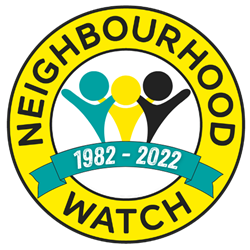|
Hello Simon
COMMUNITY SAFETY CHARTER launched to tackle crimes in public spaces

Our new Community Safety Charter, launched today, encourages everyone from individuals, Neighbourhood Watch groups, businesses, and organisations to take an active stance against crimes in public spaces, such as harassment, hate crime, and antisocial behaviour.
The Charter tagline is #BETHECHANGE, focusing on the role of active bystanders in leading the change within their communities. The Charter supports greater understanding about how we recognise and deal with community safety issues and support victims by knowing where to get help, how and who to report to, enabling a more positive, proactive approach by the whole community when witnessing or experiencing confrontation, hostility, or harassment.
Do I need to make a pledge?
We are delighted to invite you to sign up to the Charter.
By signing up individuals, businesses, organisations, and groups pledge to four actions:
- PROMOTE - promote a culture that does not tolerate harmful language, antisocial behaviour and hostility toward others
- ENABLE - enable others to identify and take an active stance to prevent harassment, antisocial behaviour and intimidation within their community
- REPORT - actively encourage and support others to report harassment, antisocial behaviour and intimidation and share intelligence about these crimes with the relevant authorities
- SUPPORT - support those affected by harassment, antisocial behaviour and intimidation and refer victims to the appropriate support agency
What will I receive when I sign up?
You will receive a printable poster, individual pledges to share on social media, and a comprehensive information pack on a specific topic or crime every two months which you can share with your staff/volunteers/colleagues/friends. The topics covered in the first year are:
- harassment
- hate crime
- antisocial behaviour
- being an active bystander
- dealing with confrontation
- leading the change in our communities
Where can I find out more?
- Attend our Community Safety Charter and ASB Webinar on the 21st July at 5pm. Book your online place here
- Watch an interactive presentation here
- Contact the Neighbourhood Watch Community Safety Charter Leads - This email address is being protected from spambots. You need JavaScript enabled to view it., Head of Membership and Engagement, or This email address is being protected from spambots. You need JavaScript enabled to view it., Head of Partnerships and Projects
How do I sign up?
Simply complete the online form on ourwatch.org.uk/charter. Once you have signed up, we will contact you with you within 5 working days to share the first information pack and other resources.
Please share the details of the Charter with your networks and encourage them also to sign up and share it.
#BeTheChange
Central Support Team | NEIGHBOURHOOD WATCH NETWORK
Follow us... ourwatch.org.uk / Facebook / Twitter / Instagram / LinkedIn
Neighbourhood Watch Network is a charity registered in England & Wales, CIO no: 1173349

CELEBRATING 40 YEARS OF CREATING SAFER, CONNECTED AND ACTIVE COMMUNITIES
Please note: This email has been sent to all Neighbourhood Watch supporters within our network
|